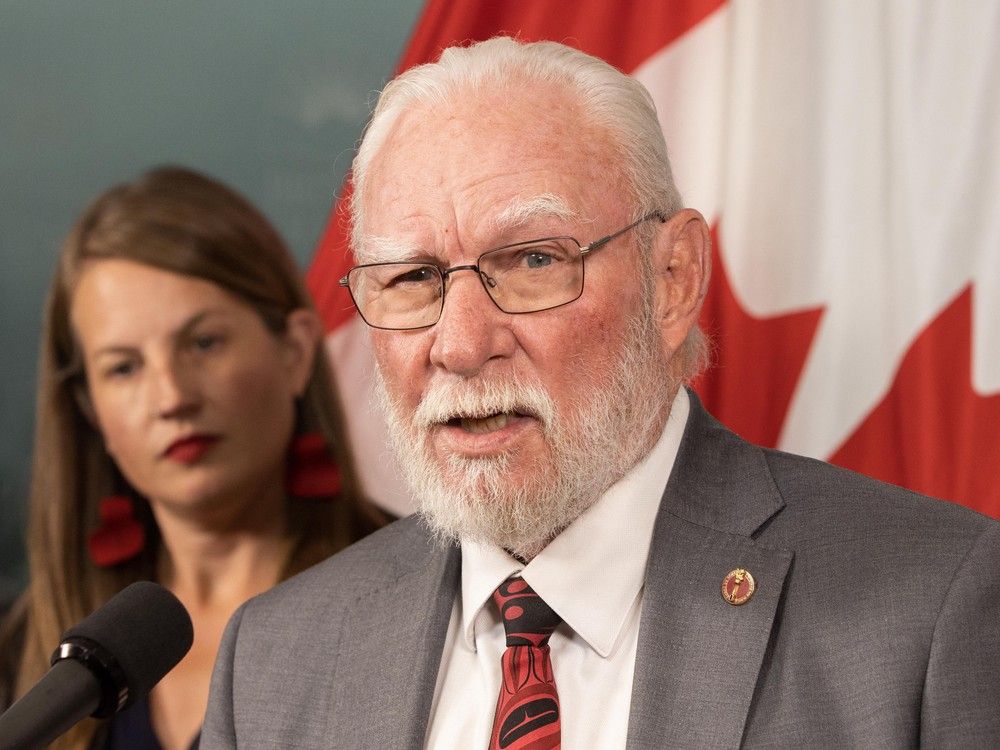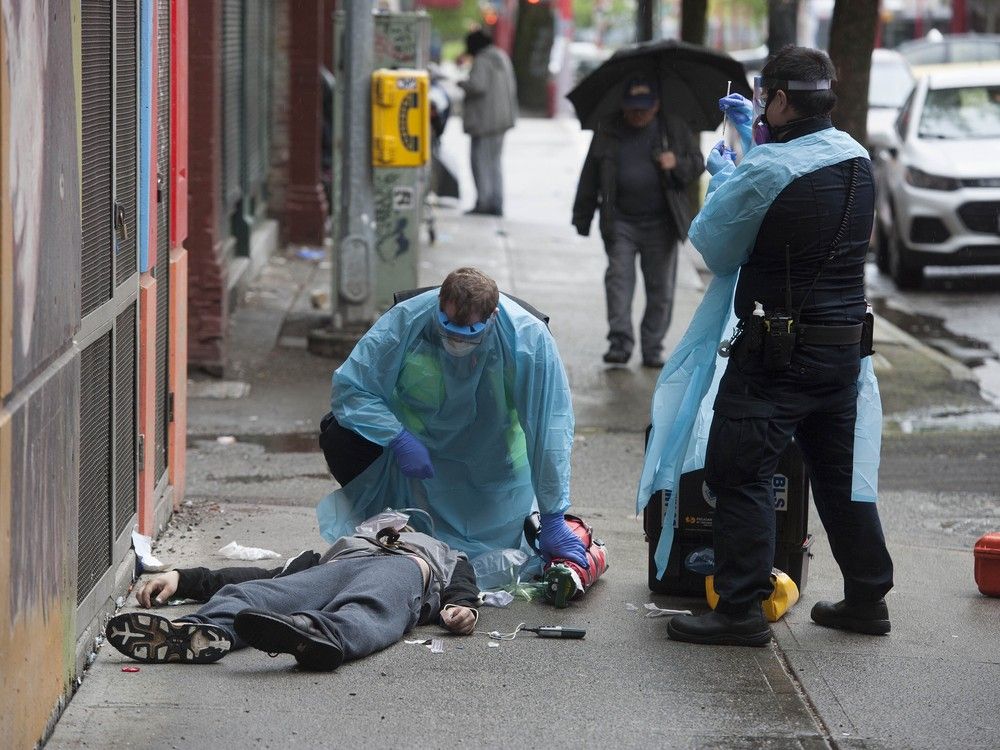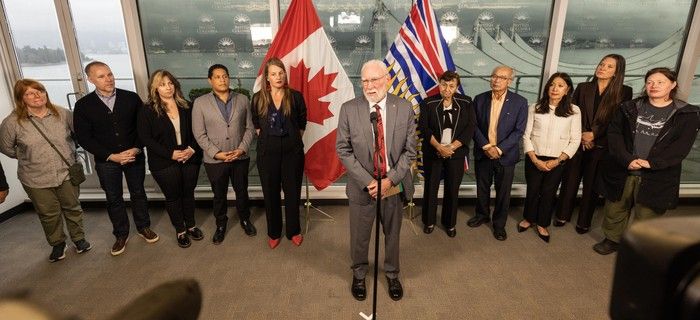
Can former senator and ex-Vancouver Mayor Larry Campbell turn things around in the city’s Downtown Eastside?
On Monday, Campbell publicly accepted a six-month appointment as adviser to the province aimed at finding solutions and improving the lives of people in the neighbourhood.
First and foremost, said Campbell, “I am not a czar.” Nor is he a “saviour” for the DTES.
Campbell said desperately needed housing will be key to change.
“I’m hoping that by working with the community that we can achieve a process whereby people can move from their situation on the Downtown Eastside into proper housing.”
Perhaps to underscore that one person will not be the answer to the area’s challenges, Campbell shared his appearance with DTES community partners, including Sarah Blyth from the Overdose Prevention Society, Steve Johnston from Community Impact Real Estate Society, Carol Lee from the Vancouver Chinatown Foundation, Angela MacDougall from Battered Women Support Services, Wendy Pedersen from the Downtown Eastside SRO Collaborative, Bobby MacDonald and Nicole Mucci from Union Gospel Mission, and Amanda Burrows from First United.
Both Blyth and Pedersen were emotional when they spoke about what Campbell’s appointment means to the community.
“The scale of the need is so huge,” said Pedersen. “There are 10,000 people without proper housing there.”
Pedersen broke down briefly. “We need help.”
Blyth said Campbell’s appointment gives her hope.
“People are dying. I think he can help us with the politics and help people understand what’s happening, and what we are going through and change some of the negative narrative.
“I am hoping to find a process with all of the people behind me and the many hundreds, perhaps thousands, in the Downtown Eastside to make it better for the people who live in this community.”

Campbell acknowledged that the DTES had been “over-consulted” and “over-reported on,” but his initial goal will be to talk to community members to make sure they are all going in the same direction.
“I wouldn’t have taken this position if I wasn’t sure that with the help of these people, and with the help of all three levels of government that we can make changes.”
Campbell is the second DTES adviser appointed by Premier David Eby’s government. The first, Michael Bryant, was terminated by Eby in May after his consultancy contract came under fire for a lack of transparency.
Eby said he had hired Bryant because he wanted someone with “fresh eyes.”
Campbell may not have fresh eyes, but he was open about his compensation: $92,000 plus up to $10,000 in expenses.
The former RCMP officer and provincial coroner was mayor from 2002 to 2005 and oversaw the opening of Insite, Vancouver’s first supervised consumption site. But much has changed since then.
“In 1973, I went to the Downtown Eastside on the drug squad, and it changed from 1973 to 1981 when I started as coroner, (and) 1986 when I became chief coroner. This is a neighbourhood that has been in constant change.”
With the advent of fentanyl, “it’s a whole different ball game down there,” said Campbell.
Campbell acknowledged that the four pillars strategy to manage addiction, which was a central theme of his municipal election campaign in 2002 — prevention, treatment, harm reduction and enforcement — did not do the job.
“The enforcement pillar was funded high. The other pillars, not so much.”
Treatment and prevention did not get the same support, said Campbell. “Can we get to that point? I’m going to try.”
“What I hope to do is deliver a process whereby we see changes and see people moving into proper housing,” he said, adding that for many, housing is not enough.
“One size doesn’t fit all,” said Campbell. The “process” he hopes to develop to get people into housing will have to address the special needs of women at risk, Indigenous people and those struggling with mental illness and addiction.

Christine Boyle, B.C.’s minister of housing and municipal affairs, said those experiences will make him “the highly effective bridge we need to co-ordinate between municipal, provincial and federal governments,” and to “deliver results.”
Boyle said Campbell’s focus will be to co-ordinate and advance the province’s efforts to improve outcomes for people, public spaces, infrastructure, housing, health care and economic development in the DTES and cited Campbell’s experience and relationships.
Guy Felicella, a harm-reduction advocate and addiction specialist, said his gut reaction is that Campbell’s support of harm reduction was notable, but added, “We are not in 2002. The drug supply has changed. The challenges are more significant. People are dying at an alarming rate from the toxic drug supply.”
Felicella said access to housing will be most critical, not just in Vancouver but throughout B.C.
“I don’t think we are going to solve any challenges in six months but if Larry can bring everybody together and if he listens to the people that have been doing good work, and addresses the challenges of accessing services, we’ll see.”
Claire Rattee, the B.C. Conservative opposition critic for mental health and addictions, said the province doesn’t need more consultants.
“The premier must abandon his failed social experiment, end taxpayer-funded drug consumption sites, and finally invest in real treatment, mental health supports, and recovery programs,” she said in a statement.